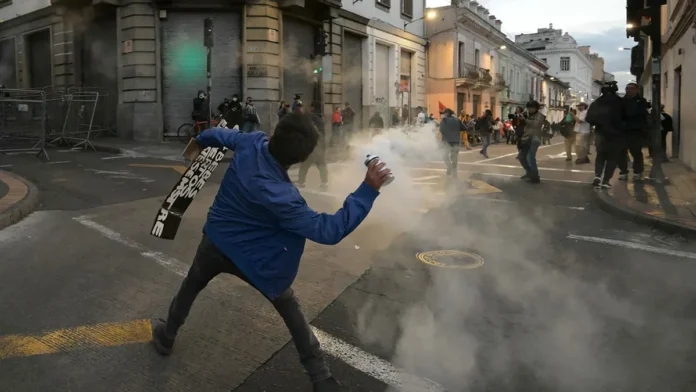Ecuador’s President Daniel Noboa has declared a 60-day state of emergency in seven provinces following violent protests triggered by his government’s abrupt removal of a decades-old diesel subsidy.
The decree, issued Tuesday, mobilizes both the armed forces and national police to respond to what the government described as “severe internal disturbance.” According to the U.S. embassy in Quito, security forces were deployed to “prevent the interruption of public services and maintain freedom of movement for the general population.”
While the measure suspends the right to assemble when gatherings block services or restrict others’ freedoms, it does not impose a curfew or restrict general movement.
Unrest broke out after the government scrapped the $1.1 billion subsidy last Friday, driving the price of diesel from $1.80 a gallon to $2.80 overnight. Demonstrators clashed with police in the capital, dismantling fences and barriers as security forces responded with tear gas.
“For decades, the diesel subsidy represented a $1.1 billion burden on fiscal accounts, without truly reaching those who needed it,” the government argued on X. Officials said savings from the subsidy removal will be redirected toward social programs, with $220 million allocated to the transportation sector to prevent public transit fare hikes.
Still, many Ecuadorians fear the decision will hit the poorest hardest. Critics say the subsidy had shielded low-income households from sharp increases in fuel prices, even if wealthier groups also benefited.
Noboa’s administration has pledged to introduce a price stabilization mechanism on December 11 to protect consumers from global oil market swings, though details remain unclear.
Despite the turmoil, the U.S. State Department has not updated its travel advisory, which currently urges Americans in Ecuador to exercise caution and avoid large gatherings where violence may occur.

